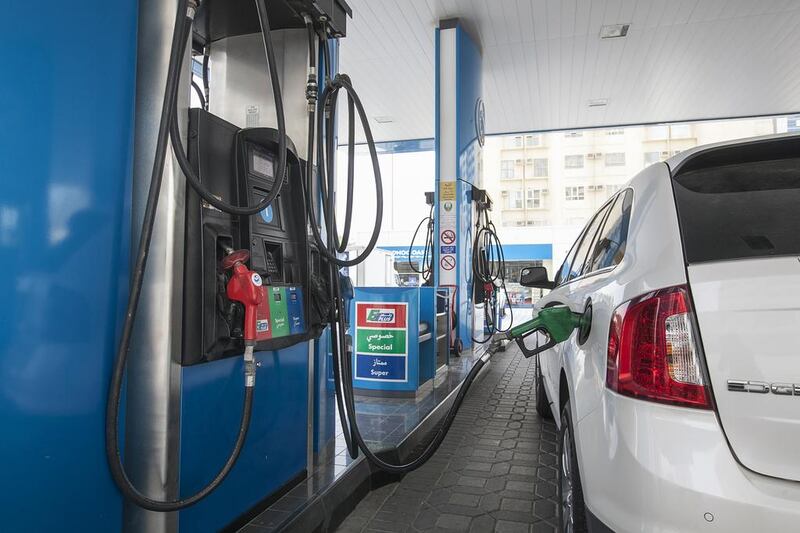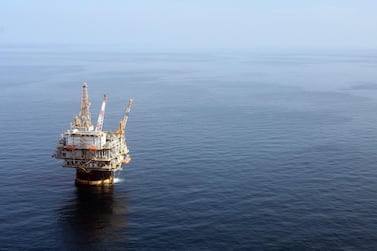The cost of filling up at the petrol pumps across the UAE is to rise considerably in May.
The fuel price committee has announced an increase of more than 10 per cent for motorists using Super 98 and Special 95. This follows a 9 per cent rise at the beginning of April.
Here is the breakdown of the prices per litre:
• Super 98: up 25 fils to Dh2.48 (11.21 per cent)
• Special 95: up 23 fils to Dh2.34 (10.9 per cent)
• Diesel: up 4 fils to Dh2.53 (1.6 per cent)
Fuel prices in the UAE were liberalised in August 2015 to adjust as per the market.
Oil prices have surged this year by about 33 per cent and were at a six-month high last week after the United States announced it will not renew exemptions allowing China and few other buyers to keep importing Iranian crude.
However, prices took a hit on Friday when US President Donald Trump said he had spoken to Opec nations, including Saudi Arabia, about keeping prices down.
Brent crude was down 25 cents at $71.90 a barrel this morning after losing 3 per cent on Friday, while West Texas Intermediate fell 31 cents to $62.99 a barrel, having lost 2.9 per cent on Friday.
“Oil’s finding its place between $60 and $65 and the range seems to be about right as supplies are still looking tight, while there are limitations for an additional rally,” Ahn Yea Ha, a commodities analyst at Kiwoom Securities in Seoul, told Reuters.
“Further gains will be restricted by Saudi Arabia, along with other producers including the US, as no one wants to see a rapid increase in prices that would hurt consumption.”
Petrol prices in the UAE peaked in the second half of last year when Brent spiked at $86 a barrel, the highest level since November 2014. Brent then plunged around the turn of the new year and motorists were paying under Dh2 a litre before they were hit by increases again in 2019.








